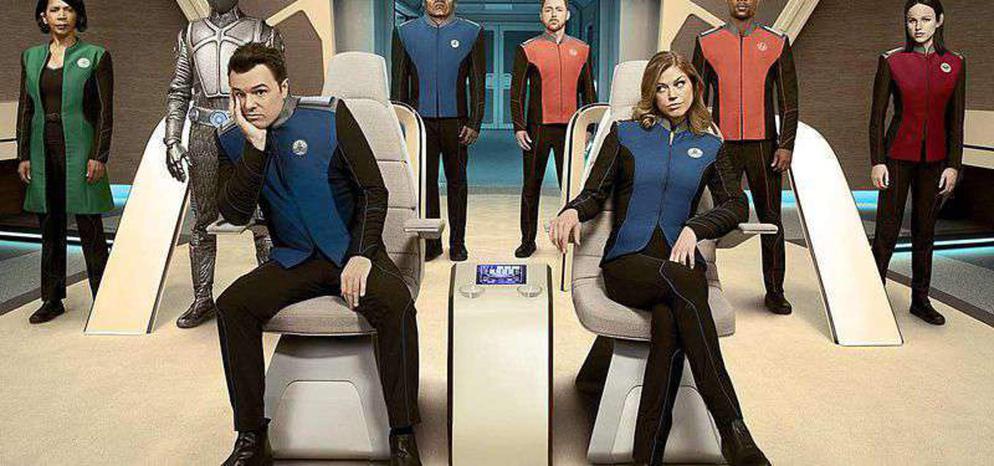Finding Balance with The Orville

After the third episode of The Orville, we’ve seen the range that the series is capable of. I’m happy to say that I am increasingly optimistic. Often hampered by a need to be silly and comedic, The Orville shines most as an homage to Star Trek, but with a modern feel.
I like what creator Seth Macfarlane is trying to do with The Orville. To date, science fiction fans have had two polarized visions of the future: the cold and Utopian Star Trek and the dirty rebel filled Star Wars. The Orville is trying to find humor in having real people in Star Trek. This is a world filled with idiots and poor decisions, but with a polished civilization.
Though it started with absurd story telling and character development with glimpses of this idea, The Orville is finally showing a glimpse of what it can be. Episode 3, About a Girl, is reminiscent of The Measure of a Man from Star Trek: The Next Generation. About a Girl tackles some complicated questions in a way that’s only possible through the lens of science fiction.
In About a Girl two members of a species that is entirely male have a female child. Wanting the best for their child, they decide to have gender reassignment surgery. That idea is a loaded can of worms. There are a lot of different issues you can address with this concept such as either gender equality or transgender-ism. The direction that The Orville goes with this, tends to lean more toward gender equality, but it doesn’t ignore the larger ideas.
Here are some of the questions that About a Girl asks: Is it okay for a culture to force bodily change on infants? Are major changes okay for the purposes of ensuring quality of life? How severe can those changes be? Is there an absolute morality that defines limits to cultural body modifications? To what end do you accept a culture’s right to make these decisions for their people, or even their infants?
Where The Orville gets it right is by not providing answers, only questions. The resolutions divert away from sitcom style resolution and gives a nuanced solution that doesn’t make you feel good. Endings that make you feel good usually don’t make you think very much. What I can say about the ending to About a Girl is that it made me think. The level of sensitivity and intelligence that the episode had for the core questions was surprising for me.
I was unsure of what The Orville was capable of when it first aired. If it can capture more of what I got from About a Girl, then this show could be more than a parody. There is an opportunity here for a unique platform for great science fiction that is also funny. If it continues in this direction, I’m excited for what we’ll get going forward.